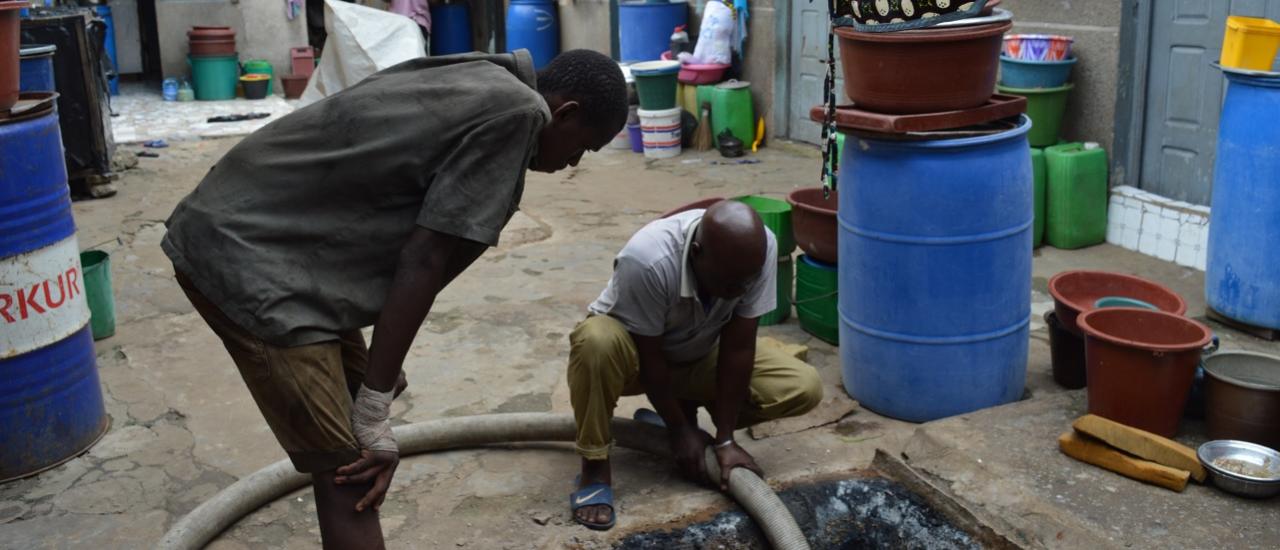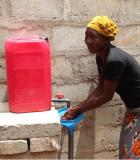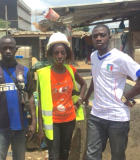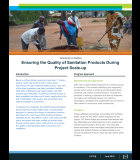In West Africa, sanitation access for the urban poor is extremely low. A significant portion of the population living in informal settlements resort to open defecation, and those that have sanitation access often share a poorly maintained latrine with multiple families. Cholera outbreaks are not unusual. And prohibitive prices for fecal sludge collection services—a necessity for the type of onsite sanitation in these neighborhoods—stop many landlords and poor households from investing in latrines and proper waste disposal. To build a market for toilets, it is important to ensure that fecal sludge management (FSM) services are affordable, professional, and accessible.
USAID’s West Africa Sanitation Service Delivery (SSD) Project is working to create a more effective, efficient, and inclusive sanitation market in Benin, Côte d’Ivoire, and Ghana by partnering with the private sector, governments and municipalities, and consumers. Improving FSM options in these countries starts with building the capacity of the private sector. After becoming familiar with each country’s toilet entrepreneurs and vacuum truck operators and their markets and challenges, SSD offers training to professionalize operations, increase pricing transparency, and reduce operational costs. Entrepreneurs who go through the program are certified, provided starter kits, and connected with municipalities who help promote their services.
Vacuum truck operator Adama Ballo participated in a pilot training/mentoring program in Abidjan, Côte d’Ivoire, where he learned how to make better management decisions and increase his profit margins. As a result, he has devised a smarter scheduling scheme that groups his clients into three zones based on the distance from their home and the dumping site, which has reduced his transportation costs and simplified his pricing. “In the next six months I hope to acquire a third vacuum truck… because I am more confident about the future of my business,” he says. As of the end of FY 2017, SSD trained 130 sanitation entrepreneurs, helped more than 400 people gain access to safe FSM services, and close to 4,000 people improve their sanitation access.
Related
Seeking New Ways to Expand Sanitation for the Urban Poor in West Africa






